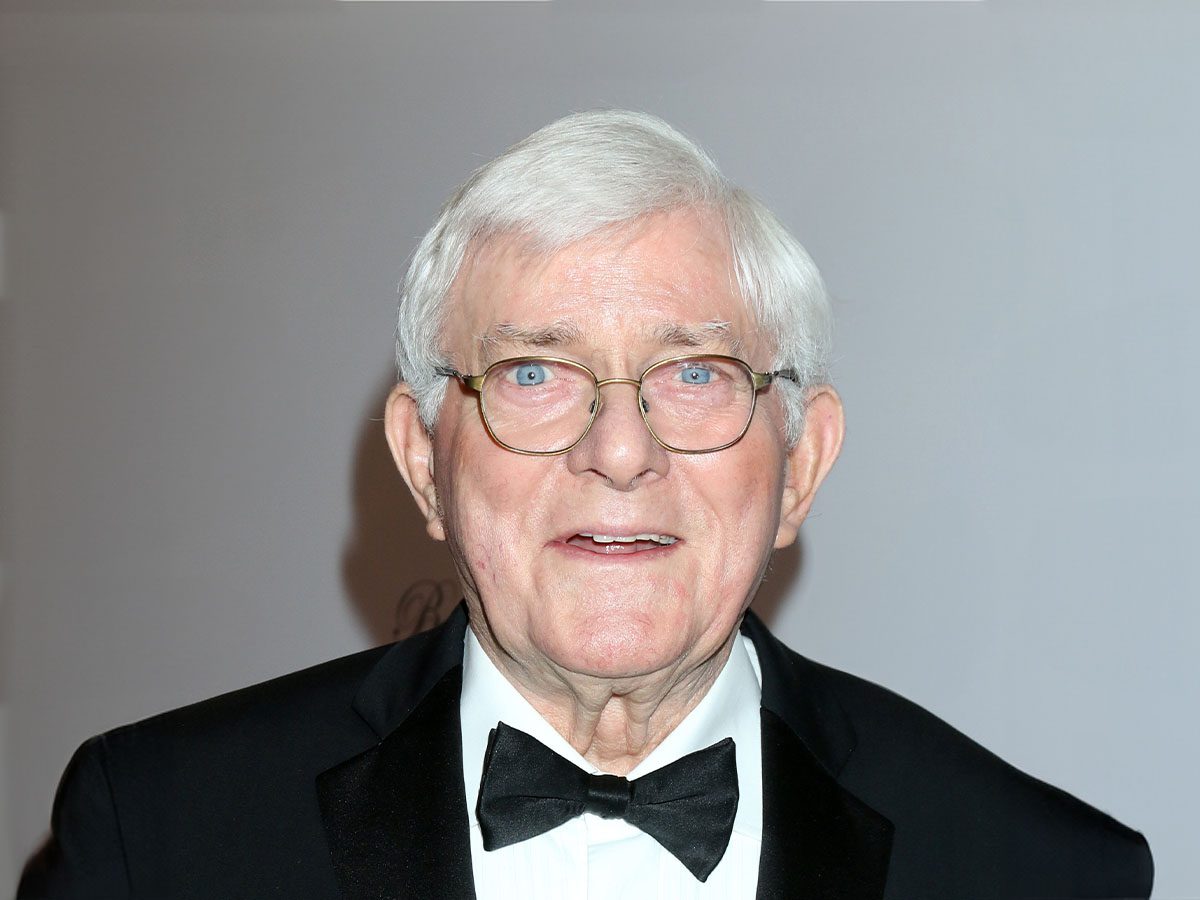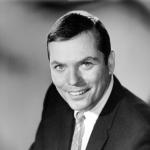
On Sunday night, the world lost a television legend. Phil Donahue, the iconic national talk show host who entertained, challenged, and informed two generations of daytime television viewers, passed away at the age of 88 after a long illness, his family confirmed to the “Today” show. Known for his pioneering approach to talk shows, Donahue was a trailblazer in the realm of issue-oriented programming, leaving an indelible mark on television history.
Phillip John Donahue was born in Cleveland, Ohio, on December 21, 1935. From humble beginnings, Donahue’s journey into the world of media began during his junior year at the University of Notre Dame, where he majored in business. He took a summer job at WNDU, a local station owned by the university, which eventually led to a full-time career in broadcasting. After graduating with a Bachelor of Business Administration, Donahue’s early career saw him working at various radio and television stations, honing his skills and building a reputation as a compelling journalist and interviewer.
In 1967, Donahue began hosting a morning interview program on WLWD TV in Dayton, Ohio, called “The Phil Donahue Show.” The show, which later became simply known as “Donahue,” was revolutionary for its time. Unlike other programs that featured multiple guests or a mix of entertainment, Donahue’s format focused on a single guest and a single issue per episode. This unique approach allowed for in-depth discussions on often controversial topics, and Donahue’s interaction with his studio audience became a signature aspect of the show.
His first guest was Madalyn Murray O’Hair, the outspoken atheist whose case against school prayer had been successfully argued before the Supreme Court. The episode drew significant viewer response, setting the tone for what would become a hallmark of Donahue’s career—tackling hot-button issues head-on.
“The Phil Donahue Show” quickly became a success in Dayton, leading Avco Broadcasting Co. to begin syndicating it to other stations around the country in 1969. By 1974, the show had moved to Chicago and was renamed “Donahue.” The program’s popularity soared, eventually reaching more than 200 stations across the country and attracting millions of viewers, predominantly women.
Donahue’s ability to engage with his audience on complex and sometimes divisive issues was unparalleled. Over the years, he interviewed a wide range of guests, from heads of state and politicians to feminists, Ku Klux Klan members, and ’60s radicals. His interviewing style was forceful yet never belligerent, earning him respect as a journalist who could delve deep into difficult topics without alienating his audience.
One of Donahue’s most notable interviews was with South Africa’s Nelson Mandela shortly after Mandela’s release from prison. This interview, among many others, highlighted Donahue’s commitment to bringing important global issues to the forefront of American television. His show became a platform for discussing topics that were often ignored or glossed over by other programs, making him a potent contrast to the celebrity chatter and soap opera dramas that dominated daytime TV.
Throughout his career, Donahue received numerous accolades for his work. He won nine Daytime Emmys and 21 nominations, as well as a primetime Emmy for his special “Donahue and Kids.” In 1981, he was honored with a Peabody Award, recognizing his significant contributions to broadcasting. Donahue’s influence extended beyond the United States as well. In 1985, he and his Soviet counterpart Vladimir Pozner initiated dialogues via satellite between American and Russian audiences, a groundbreaking effort during the Cold War era.
However, as the landscape of daytime talk shows began to change in the mid-1990s, Donahue found himself facing new challenges. The rise of tabloid-style shows, such as “The Jerry Springer Show,” shifted the focus of daytime television from thoughtful discussion to sensationalism. Donahue’s program, though not immune to sensational topics, was still relatively tame compared to its competitors. His chief rival, Oprah Winfrey, also drew away much of his female viewership, further eroding his audience base.
By 1996, after more than 6,000 episodes, “Donahue” was no longer the powerhouse it once was. The show eventually ended, marking the conclusion of an era in daytime television.
In 2002, Donahue made a brief return to television with a self-titled talk show on MSNBC. The program focused on social and political issues, drawing the highest ratings of any show on the cable network at the time. However, it was canceled after six months, leading some to speculate that Donahue’s left-leaning politics were at odds with the prevailing political climate.
Despite this setback, Donahue continued to be a vocal presence in the media. He co-wrote, directed, and produced the 2007 documentary “Body of War,” which critiqued the Iraq War by following a single injured soldier after his return from combat. The documentary was widely praised for its powerful message and emotional impact.
Even without his own show, Donahue remained active in the public eye, making appearances on various talk shows and documentaries. In 2010, he joined fellow former talk show hosts on “The Oprah Winfrey Show” for a special episode, reminding audiences of his lasting influence on the genre.
Phil Donahue’s contributions to television were recognized with numerous awards throughout his career, including induction into the Academy of Television Arts & Sciences’ Hall of Fame in 1993 and an ATAS lifetime achievement award in 1996. His legacy as a pioneer of daytime talk shows is undeniable, and his approach to tackling controversial issues set a standard for future generations of broadcasters.
Donahue is survived by his second wife, actress Marlo Thomas, whom he married in 1980, and five children from his first marriage. His passing marks the end of an era, but his impact on television and journalism will be felt for years to come. Phil Donahue was not just a talk show host; he was a cultural icon who dared to ask the tough questions and brought meaningful dialogue into the homes of millions. His legacy will continue to inspire and influence the world of television for generations.


